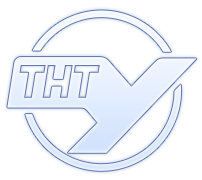|
|
|
Створення й тестування моделі освітньо-наукової діяльності закладу освіти: технологія, оцінювання якості, соціально-економічний вплив
| Назва | Створення й тестування моделі освітньо-наукової діяльності закладу освіти: технологія, оцінювання якості, соціально-економічний вплив |
| Назва англійською | Creation and testing of the educational and scientific activity model for educational institution: technology, quality assessment, socio-economic impact |
| Автори | Артюхов А. |
| Принадлежність |
Сумський державний університет, Суми, Україна |
| Бібліографічний опис | Артюхов А. Створення й тестування моделі освітньо-наукової діяльності закладу освіти: технологія, оцінювання якості, соціально-економічний вплив. Галицький економічний вісник. 2021. Том 69. № 2. С. 7-13. |
| Bibliographic description (trans): | Artuykhov, A. (2021). Creation and testing of the educational and scientific activity model for educational institution: technology, quality assessment, socio-economic impact. Galician economic journal, vol. 69, no 2, pp. 7-13. |
| Bibliographic description: | Artuykhov, A. (2021). Creation and testing of the educational and scientific activity model for educational institution: technology, quality assessment, socio-economic impact. Galician economic journal, vol. 69, no 2, pp. 7-13. |
| UDC: |
37.014.542 |
| DOI | https://doi.org/10.33108/galicianvisnyk_tntu2021.02.007 |
| Ключові слова |
заклад освіти, модель освітньо-наукової діяльності, тестування, якість освіти, соціально-економічний вплив |
| Короткий опис |
Зроблено спробу алгоритмізації процесу створення та оцінювання якості освітньо-наукової діяльності закладу освіти із використанням аналогії з тестуванням програмних продуктів в IT-сфері. В рамках роботи для описування алгоритму створення моделі освітньо-наукової діяльності закладу освітиви користано абстрактно-логічний метод, метод аналогій, метод індукції-дедукції. Розглянуто зміст кожного з блоків наведеного алгоритму, у тому числі й з точки зору впливу на соціально-економічний розвиток держави. Запропоновано багатоступеневий механізм перевірки працездатності моделі за алгоритмом «тестування – контроль якості – внутрішнє забезпечення якості – зовнішнє забезпечення якості». В якості соціально-економічних показників моделі (системи) освітньо-наукової діяльності закладу освіти запропоновано такі індикатори, як економічна модель; оцінювання ризиків упровадження; дослідження ринку послуг та конкурентів; створення мережі субрахунків надавачів освітніх і наукових послуг; формування кошторису за кожним елементом функціонування системи; розрахунок передбачуваного фінансування на здійснення діяльності; пошук донорів та/або власних коштів для фінансування основних складових системи; місце закладу освіти у національних та/або міжнародних рейтингах, рейтингах за спеціальністю тощо; відгуки роботодавців; середня заробітна плата випускника освітньої програми; швидкість кар’єрного зростання випускника. Представлений алгоритм створення і тестування ефективної моделі освітньо-наукової діяльності , закладу дозволяє визначити умови багатоступеневої перевірки дієвості механізмів забезпечення якості. При цьому на етапах тестування, контролю якості, внутрішнього і зовнішнього забезпечення якості за відгуками відповідних стейкголдерів (тестувальників). На кожному етапі алгоритму визначено соціально-економічні фактори впливу, які є інструментами подальшого коригування (за необхідності) та оптимізації роботи моделі.
|
| ISSN: | 2409-8892 |
| Перелік літератури |
-
Річній звіт Національного агентства із забезпечення якості вищої освіти: 2019. Київ. 2020. 244 с.
-
Річній звіт Національного агентства із забезпечення якості вищої освіти. 2020. Київ. 2021. 364 с.
-
Resnik J. International Organizations, the «Education–Economic Growth» Black Box, and the Development of World Education Culture. 2006. Comparative Education Review. 50 (2). Р. 173–195.https://doi.org/10.1086/500692
-
Hanushek E. A. Why quality matters in education. 2005. Finance and Development. 2005. 42 (2).Р. 15–19.
-
Todoruţ A. V. A new architecture of quality in education. Quality – Access to Success. 2016. 17 (153). Р. 60–63.https://doi.org/10.11118/actaun201866010253
-
Kotaskova S. K., Procházka P., Smutka L., Maitah M., Kuzmenko E., Kopecka M., Hönig V. The impact of education on economic growth: the case of India. Acta Universitatis Agriculturae et Silviculturae Mendelianae Brunensis. 2018. 66 (1). Р. 253–262.
-
Matsushita S., Siddique A., Giles M. Education and Economic Growth: A Case Study of Australia. Economic Discussion. 2006. Working paper. No. 0615.
-
Abugamea G. The impact of Education on Economic Growth in Palestine: 1990–2014. METU Studies in Development. 2017. 44 (3). Р. 261–280. https://doi.org/10.24818/amp/2020.34-01
-
Vorontsova A., Vasylieva T., Bilan Y., Ostasz G., & Mayboroda T. The influence of state regulation of education for achieving the sustainable development goals: Case study of central and eastern european countries. Administratie Si Management Public. 2020. 34. Р. 6–26.
-
Mantovani D., Gouvea M., & Conejero M. Quality Gap Analysis on Education Services. International Journal of Advances in Management and Economics. 2013. 2(5). Р. 30–39.
-
Keban Y. B., Arifin S., & Wahyono R. SWOT Analysis and Its Implementation Strategies in Educational Management. Journal of Education and Practice. 2019. 10 (12). Р. 86–92. https://doi.org/10.1016/j.acalib.2020.102219
-
Cox J. The higher education environment driving academic library strategy: A political, economic, social and technological (PEST) analysis. The Journal of Academic Librarianship. 2021. 47 (1). 102219.
-
Knowledge Economy Index. URL: https://www.ebrd.com/news/publications/brochures/ebrd-knowledge-economy-index.html (date of appeal 02/18/2021).
-
Global Knowledge Index. URL: https://www.undp.org/content/undp/en/home/librarypage/capacity-building/Global-Knowledge-Index-2020.html (date of appeal 02/18/2021).
-
Education index. URL: http://hdr.undp.org/en/content/education-index (date of appeal 02/18/2021).
-
Quality of the education system. URL: https://tcdata360.worldbank.org/indicators/h6ddb6eaa?country= BRA&indicator=568&viz=line_chart&years=2007,2017 (date of appeal 02/18/2021).
-
The Right to Education Index. URL: https://www.rtei.org/en/ (date of appeal 02/18/2021).
-
The Legatum Prosperity Index 2020. URL: https://www.prosperity.com/rankings (date of appeal 02/18/2021). https://doi.org/10.1596/1813-9450-8314
-
Altinok N., Angrist N., Patrinos H. A. Global Data Set on Education Quality (1965–2015). Policy Research Working Paper 8314Education Global Practice Group, 2018. 78 p.
|
| References: |
-
Richniy zvit Natsionalnoho ahentstva iz zabezpechennya yakosti vyshchoyi osvity: 2019. Kyiv, 2020.
244 р.
-
Richniy zvit Natsionalnoho ahentstva iz zabezpechennya yakosti vyshchoyi osvity: 2020. Kyiv, 2021.
364 р.
-
Resnik J. (2006). International Organizations, the “Education–Economic Growth” Black Box, and the Development of World Education Culture. Comparative Education Review, 50 (2). Р. 173–195. https://doi.org/10.1086/500692
-
Hanushek E. A. (2005). Why quality matters in education. Finance and Development, 42 (2), Р. 15–19.
-
Todoruţ A. V. (2016). A new architecture of quality in education. Quality – Access to Success, 17 (153),
Р. 60–63.
-
Kotaskova S. K., Procházka P., Smutka L., Maitah M., Kuzmenko E., Kopecka M., Hönig V. (2018). The impact of education on economic growth: the case of India. Acta Universitatis Agriculturae et Silviculturae Mendelianae Brunensis, 66 (1). Р. 253–262. https://doi.org/10.11118/actaun201866010253
-
Matsushita S., Siddique A., Giles M. (2006). Education and Economic Growth: A Case Study of Australia. Economic Discussion, working paper. No. 0615.
-
Abugamea G. (2017). The impact of Education on Economic Growth in Palestine: 1990–2014. METU Studies in Development, 44 (3). Р. 261–280.
-
Vorontsova A., Vasylieva T., Bilan Y., Ostasz G., & Mayboroda T. (2020). The influence of state regulation of education for achieving the sustainable development goals: Case study of central and eastern european countries. Administratie Si Management Public. 2020 (34) Р. 6–26. https://doi.org/10.24818/amp/2020.34-01
-
Mantovani D., Gouvea M., & Conejero M. (2013). Quality Gap Analysis on Education Services. International Journal of Advances in Management and Economics. 2 (5). Р. 30–39.
-
Keban Y. B., Arifin S., & Wahyono R. (2019). SWOT Analysis and Its Implementation Strategies in Educational Management. Journal of Education and Practice, 10 (12). Р. 86–92.
-
Cox J. (2021). The higher education environment driving academic library strategy: A political, economic, social and technological (PEST) analysis. The Journal of Academic Librarianship, 47 (1), 102219. https://doi.org/10.1016/j.acalib.2020.102219
-
Knowledge Economy Index. URL: https://www.ebrd.com/news/publications/brochures/ebrd-knowledge-economy-index.html (date of appeal 02/18/2021).
-
Global Knowledge Index. URL: https://www.undp.org/content/undp/en/home/librarypage/capacity-building/Global-Knowledge-Index-2020.html (date of appeal 02/18/2021).
-
Education index. URL: http://hdr.undp.org/en/content/education-index (date of appeal 02/18/2021).
-
Quality of the education system. URL: https://tcdata360.worldbank.org/indicators/h6ddb6eaa?country= BRA&indicator=568&viz=line_chart&years=2007,2017 (date of appeal 02/18/2021).
-
The Right to Education Index. URL: https://www.rtei.org/en/ (date of appeal 02/18/2021).
-
The Legatum Prosperity Index 2020. URL: https://www.prosperity.com/rankings (date of appeal 02/18/2021).
-
Altinok N., Angrist N., Patrinos H. A. (2018). Global Data Set on Education Quality (1965–2015). Policy Research Working Paper 8314, Education Global Practice Group. 78 p. https://doi.org/10.1596/1813-9450-8314
|
| Завантажити |  |
|







